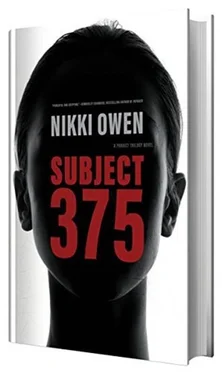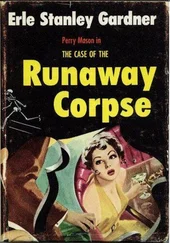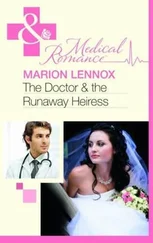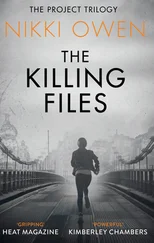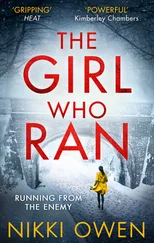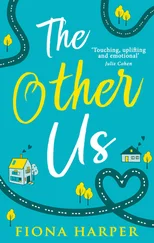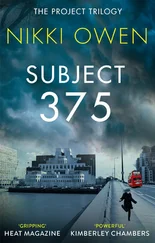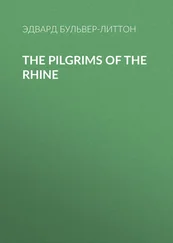A gust of wind bursts in and the window slams shut. I jump. Kurt glances over to it but says nothing, does not move. I slap my hand to my chest, slow myself. Something is happening here. Kurt was different just now. He was. I am positive. I have to try to seal it all in my mind, protect it, try to keep learning his contradictive nuances so I can paint the whole picture. So I can always remember.
A knock sounds on the door, breaking the suffocating silence. Kurt looks up. ‘Come in.’
The coffee woman enters, the same one as before. Why is she back? She passes Kurt a message on a square yellow piece of paper.
‘This came for you,’ she says, her voice a punnet of plums, a swollen bunch of black grapes. ‘They need to speak to you for a moment.’
The women then turns, stares at me, her mahogany hair bobbing by her shoulders, skin the colour of buttermilk, jeans black, painted on, her leather jacket studded, worn. She continues her gaze for three seconds then, throwing Kurt a smile, she leaves, clicking the door shut behind her.
‘Who is she?’
Kurt reads the note then stands. ‘She’s my…girlfriend. She helps out here sometimes.’
I look at the door where she exited. He has someone. Someone to hold, to love. I wonder what that must feel like.
Kurt scrunches up the note and drops it into the wastepaper basket. ‘That was a message about a patient. The service need to speak to me straight away,’ he says. ‘I have to leave. I will just be a few minutes.’ He turns to exit then pauses. ‘Maria, I’m sorry if I make you feel uneasy sometimes. I know I must do. It’s just the therapy technique. Let yourself trust it. That’s the best advice I can give to you.’ He applies a quick smile. ‘Well, excuse me.’
After he has left, I breathe out and stand. My legs feel like two dead limbs. I shake them, blood rushing to my feet, and think. What Kurt said about his therapy technique, perhaps he has a point. Perhaps I am fighting it too much, reading too much into it, looking for clues and lies that simply aren’t there.
The air feels woolly, thick, and I remember: the window slammed shut earlier. I walk over to it and thrust it open. Wind rushes in, and I allow myself to savour it for a second, this glimmer of freedom, of the world below. Through the bars, the bustle of the city street rushes past in a blur of watercolour paint. Though the noise is loud, I force myself to scan it all. Because it is here. All this life beyond-it is here. It exists. And I have to picture it exactly as it is. Like taking a photograph.
Soon, Kurt will return, and if I want this therapy to help me this time, I must have a clear head. I walk back towards my seat, spot the wastepaper basket and hesitate. The note about Kurt’s patient is there, the paper yellow, words and colour together in one place just like an encoded memory. Maybe if I read the note, it will settle my mind, help me to see reality in action-real words, real colours. Then, perhaps, I will cease worrying about contexts and hidden meanings and distorted memories.
Without allowing myself a change of mind, I quickly bend down and grab the scrunched note. Returning to my chair, I flatten the paper ready to read it then stop.
I turn the paper over. Then over again. But still, I am right. Because it is blank. The paper is blank. No writing on either side. No message about a patient.
Which means only one thing: Kurt lied.
The door handle rattles and I freeze. He is returning.
The door is opening. I re-scrunch the note and throw it towards the bin, but it lands on the floor. I scramble up, fling the paper into the wastepaper basket and dart back to my seat. My heart bangs against my chest, violent, crazed. I can’t let him catch me.
Kurt enters and stops. He looks at me then glances to the wastepaper basket. ‘What were you doing?’
My chest heaves up and down. I don’t know what to do. I have a split-second decision to make: truth or lie.
‘I said what were you doing?’
‘I read the note.’
He shuts the door, stands, levitating almost, unreal. One second. Two seconds. Three seconds pass. My pulse pounds in my neck.
‘There were no words on it,’ I say, fearful of how he is going to react. ‘The paper you threw in the bin-it was blank.’
He draws in a long breath then stares straight at me. ‘Are you sure about that, Maria? There was writing on it when it was first given to me.’ He walks to the wastepaper basket, retrieves the note and sits down. He slips the paper into his pocket and picks up the Dictaphone.
I look at the bin, at where the note lay. Writing on it? How can it be?
Kurt brings the Dictaphone to his mouth and presses the record button. ‘The patient appears to be having episodes of confabulation.’ His eyes find me. ‘She is experiencing severe distortion and fabrication of events, all of which are affecting her memory. The subject has retrieved a note written to me, and has convinced herself that it contains no writing when in fact, it does. Furthermore, the level of paranoia…’
And, as Kurt records his notes, I touch my forehead and blink over and over at the criss-cross pattern of the wastepaper basket.
What is happening to me?
I am in the Plaza Mayor, the outdoor living room of Salamanca.
It is summer. The month is August. Heat shimmers from the stonework like a mirage, like a cloaked vision, and I prop my hand on my brow, squint and observe. The square is brimming with summer students, tourists, bronzed locals, their skin glistening in the sun.
I am sitting outside one of the cafés that shore up the square. A plate of tapas rests on my table: soft, succulent croquettes filled with Iberian ham, cubes of fluffy, fried potatoes smothered in spicy tomato sauce. I alternate between eating and sipping Rioja. My breathing is slow, measured. I want to be normal, seem normal.
In between bites, I glance at the notebook that sits on my lap, its ink-soaked pages flapping in the soft afternoon breeze, my bare legs still so as not to spill wine droplets on my new white linen shirt. I take a moment to stop and listen. The birds are sleeping their siesta in the heat, their song replaced with human melodies, with the lullaby, the dance of busking guitars. It all rings loud in my ears like the tremor of a trombone, but, for some reason, it does not bother me.
Every minute, I observe it all, drink it in. I have missed it, missed this place. I never knew someone could want their homeland so much to the point that they would do anything to return. Anything. To anyone that gets in their way. I lean my head backwards, allow the sun to warm my skin and think: I am lucky; the luckiest woman alive.
‘Doc?’
Someone’s voice, I hear it. It pierces my mind; the illusion begins to judder. I try to hang on to it, claw it back, but it does no good. The image of the Plaza Mayor flickers once, twice, then disappears-pop-like a television being switched off.
‘Doc, wake up. Quick!’
‘Hmmm?’
I open my eyes, but cannot hear. I wriggle a finger in my ear. Patricia’s mouth moves and her hand is thrusting something at me. The dream. My mind cannot lose the dream. I don’t want it to go, don’t want it to disappear forever. I wrestle with it as it fades from view in a shroud of static, try to pin it to the end of my bedstead, but it’s no use; it floats from my grasp in a final bubble of doubt.
‘What time is it?’ I sit up and smooth down my hair. I have not yet brushed my teeth or splashed my face with water, and the guards will be here soon.
Patricia looms in front of me again. ‘You awake now? Because you’re going to want to look at these…’
There are newspapers in her hand. And something else. Her socks. All of six pairs of them. ‘Why are they tied together?’ I croak.
Читать дальше
Конец ознакомительного отрывка
Купить книгу
